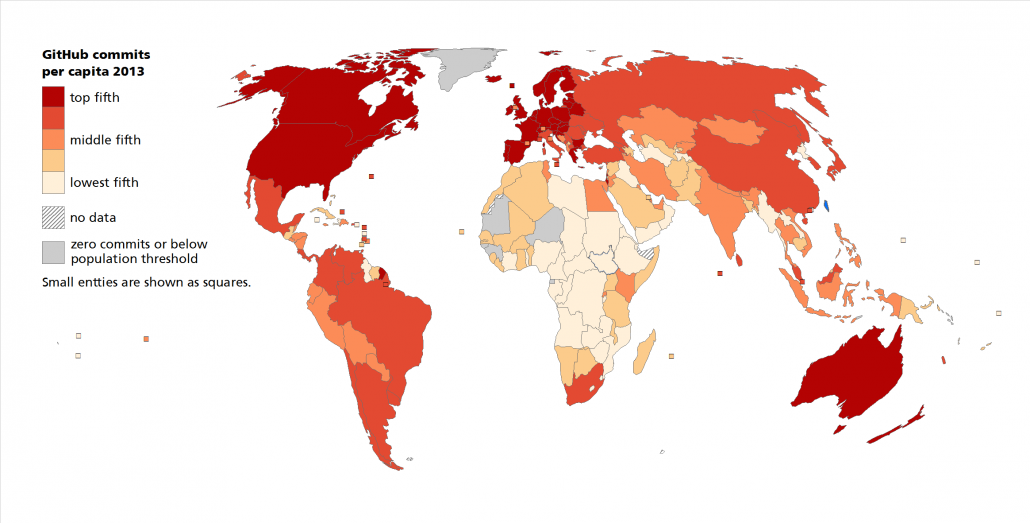We have a new publication out:
Ojanperä, S., Graham, M., Straumann, R. K., De Sabbata, S., & Zook, M. (2017). Engagement in the knowledge economy: Regional patterns of content creation with a focus on sub-Saharan Africa. Information Technologies & International Development, 13, 33–51.
It is open access, so please navigate to the journal site to download the full article.
Sub-Saharan Africa has recently seen a dramatic increase in digital connectivity, sparking many hopes about the democratization of information and knowledge production. It is thus important to empirically explore who produces and reproduces, who has access to, and who is represented in the contemporary Sub-Saharan African knowledge economy. To investigate the patterns of knowledge creation in the region and between other world regions we examine three key metrics: spatial distributions of academic articles (as a traditional form of knowledge production) and spatial distributions of collaborative software development and Internet domain registrations (as examples or proxies of digitally-mediated knowledge production).
We find that, contrary to the common expectation of digital content to be more evenly geographically distributed than academic articles, the global as well as the regional Sub-Saharan patterns of collaborative software development and domain registrations are more uneven than those of academic articles. Despite hopes of democratization afforded by the information revolution, Sub-Saharan Africa produces a lower share of digital content than traditional academic articles.
Our results suggest that the factors often framed as catalysts in the transformation to a knowledge economy do not relate to academic articles, collaborative coding, and domain registrations uniformly. While connectivity is an important enabler of digital content creation, it seems to be only a necessary, not a sufficient condition: thus, merely increasing connectivity might not allow Sub-Saharan African countries to leapfrog into higher levels of digital content creation as general wealth, innovation capacity, and public spending on education are also all important factors.
